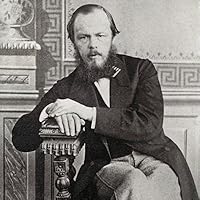Bryan
https://www.goodreads.com/bhermse


“The world is a good judge of things, for it is in natural ignorance, which is man's true state. The sciences have two extremes which meet. The first is the pure natural ignorance in which all men find themselves at birth. The other extreme is that reached by great intellects, who, having run through all that men can know, find they know nothing, and come back again to that same ignorance from which they set out; but this is a learned ignorance which is conscious of itself. Those between the two, who have departed from natural ignorance and not been able to reach the other, have some smattering of this vain knowledge and pretend to be wise. These trouble the world and are bad judges of everything. The people and the wise constitute the world; these despise it, and are despised. They judge badly of everything, and the world judges rightly of them.”
― Pensées
― Pensées

“Now goes under, and I watch it go under, the sun
That will not rise again.
Today has seen the setting, in your eyes cold and senseless as the sea,
Of friendship better than bread, and of bright charity
That lifts a man a little above the beasts that run.
That this could be!
That I should live to see
Most vulgar Pride, that stale obstreperous clown,
So fitted out with purple robe and crown
To stand among his betters! Face to face
With outraged me in this once holy place,
Where Wisdom was a favoured guest and hunted
Truth was harboured out of danger,
He bulks enthroned, a lewd, an insupportable stranger!
I would have sworn, indeed I swore it:
The hills may shift, the waters may decline,
Winter may twist the stem from the twig that bore it,
But never your love from me, your hand from mine.
Now goes under the sun, and I watch it go under.
Farewell, sweet light, great wonder!
You, too, farewell,-but fare not well enough to dream
You have done wisely to invite the night before the darkness came.”
―
That will not rise again.
Today has seen the setting, in your eyes cold and senseless as the sea,
Of friendship better than bread, and of bright charity
That lifts a man a little above the beasts that run.
That this could be!
That I should live to see
Most vulgar Pride, that stale obstreperous clown,
So fitted out with purple robe and crown
To stand among his betters! Face to face
With outraged me in this once holy place,
Where Wisdom was a favoured guest and hunted
Truth was harboured out of danger,
He bulks enthroned, a lewd, an insupportable stranger!
I would have sworn, indeed I swore it:
The hills may shift, the waters may decline,
Winter may twist the stem from the twig that bore it,
But never your love from me, your hand from mine.
Now goes under the sun, and I watch it go under.
Farewell, sweet light, great wonder!
You, too, farewell,-but fare not well enough to dream
You have done wisely to invite the night before the darkness came.”
―

“Man is said to be a reasoning animal. I do not know why he has not been defined as an affective or feeling animal. Perhaps that which differentiates him from other animals is feeling rather than reason. More often I have seen a cat reason than laugh or weep. Perhaps it weeps or laughs inwardly — but then perhaps, also inwardly, the crab resolves equations of the second degree.”
― Tragic Sense of Life
― Tragic Sense of Life

“And if one loves me for my judgement, memory, he does not love me, for I can lose these qualities without losing myself. Where, then, is this Ego, if it be neither in the body nor in the soul? And how love the body or the soul, except for these qualities which do not constitute me, since they are perishable? For it is impossible and would be unjust to love the soul of a person in the abstract and whatever qualities might be therein. We never, then, love a person, but only qualities.
Let us, then, jeer no more at those who are honoured on account of rank and office; for we love a person only on account of borrowed qualities.”
― Pensées
Let us, then, jeer no more at those who are honoured on account of rank and office; for we love a person only on account of borrowed qualities.”
― Pensées

“Above all, don't lie to yourself. The man who lies to himself and listens to his own lie comes to a point that he cannot distinguish the truth within him, or around him, and so loses all respect for himself and for others. And having no respect he ceases to love.”
― The Brothers Karamazov
― The Brothers Karamazov
Bryan’s 2024 Year in Books
Take a look at Bryan’s Year in Books, including some fun facts about their reading.
Favorite Genres
Polls voted on by Bryan
Lists liked by Bryan
















